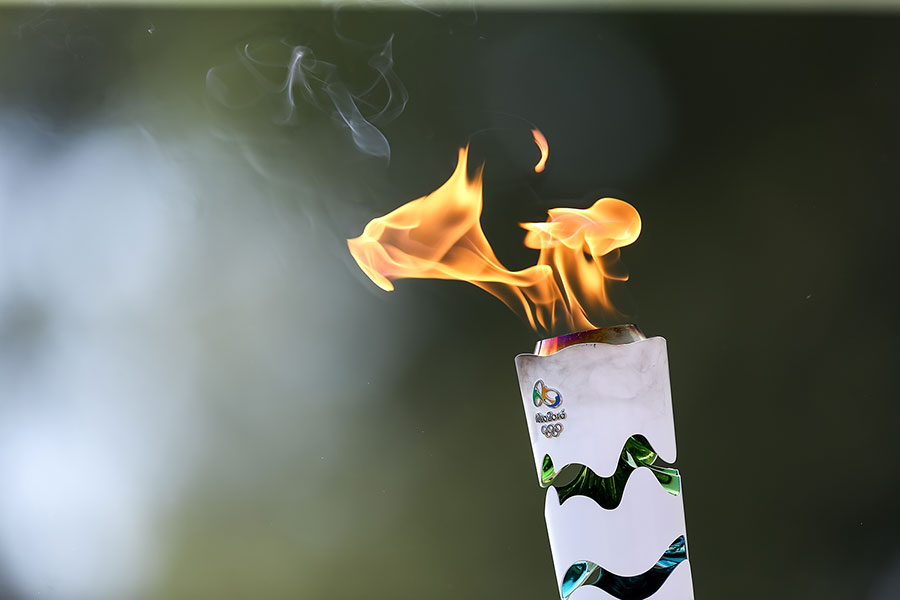 With a disarming grin well-recognized in the anti-doping community, Kris Forberg will be among the five USADA Doping Control Officers (DCOs) attending the 2016 Olympic Games in Rio to assist with anti-doping processes. Kris has been a DCO with USADA for 14 years, and he now serves as a regional team lead responsible for overseeing other USADA DCOs in the Western region.
With a disarming grin well-recognized in the anti-doping community, Kris Forberg will be among the five USADA Doping Control Officers (DCOs) attending the 2016 Olympic Games in Rio to assist with anti-doping processes. Kris has been a DCO with USADA for 14 years, and he now serves as a regional team lead responsible for overseeing other USADA DCOs in the Western region.
As a veteran DCO bound for Rio, Kris’s story is a key, and often unheard, part of the current anti-doping narrative. Here’s what you need to know about the DCO who has been attending sports events and knocking on athletes’ doors for more than a decade:
USADA: Since anti-doping is a relatively unknown career path, what led you to become a DCO?
KF: As a longtime sports fan, I was extremely intrigued by the opportunity to work with elite athletes in every sport, as well as to be a part of an organization dedicated to upholding what I believe are the values of true sport.
Looking back, I didn’t know much about USADA before joining the agency, but during my first training experience in the field, I quickly realized I was part of an organization that really cares about protecting athletes.
USADA: What do you love most about your job?
I think what I love most about my job is that it differs from day to day; one morning I’m on the track for a meet and the next afternoon I’m on the beach for a volleyball tournament. I’ve been lucky in the sense that over the years, I’ve had the chance to work with athletes from almost every sport – it’s both challenging and interesting.
But at the end of the day, no matter what sport I’m working, my impact is the same. I get to help give clean athletes a level playing field where training and hard work determines the winners.
USADA: For you, what is the most exciting part about playing a role in the Olympic Games?
KF: It’s all exciting. But I think for me, after 14 years with USADA, going to the Rio Games is the ultimate opportunity to help ensure that clean athletes have a fighting chance at the highest level of competition. I’ve spent years testing a lot of these Olympic athletes – I’ve gotten to know them – and I’m really excited to share this experience with them as a neutral participant.
USADA: Why do you think USADA was invited to help with the anti-doping efforts at the 2016 Olympics?
KF: It’s an interesting question. From my experience, I can tell you that around the world, USADA is known for being the gold standard in testing, and to that extent, our DCOs will bring in-depth expertise and experience with them to Rio. I think it’s also a sign that Brazil is embracing the Olympic values by inviting anti-doping agencies from around the world to help with the games.
USADA: As you prepare for Rio, what challenges do you expect to face at the games?
Having worked with international athletes at a number of events, I think all the USADA DCOs going to Rio are well-prepared to navigate any language barriers or other challenges that come with working at an international competition. We also understand that our job and the protocols we operate by are the same no matter the level of competition. So in that sense, we recognize that there are challenges, but we’re more than prepared to deal with them.
USADA: After 14 years, what drives you to continue working in anti-doping?
KF: I joined USADA in 2001, and since that time, I’ve come to genuinely appreciate Olympic sport. I know the anti-doping protocols these athletes comply with as elite competitors – from filing their whereabouts throughout the year to providing samples at 6 am – and I have the utmost respect for clean athletes. Their dedication and hard work is what drives me to stay in anti-doping.
USADA: How do athletes typically react when you show up to collect a sample?
For the most part, athletes react positively. They understand that testing is part of their job. By and large, they also know that they have to adhere to the same regulations as other athletes and they recognize that USADA is essentially partnering with them to help keep their sport clean. They respect that.
USADA: What’s the hardest part about working on the front lines of anti-doping?
KF: That’s interesting. Occasionally, we come across some athletes who think USADA is out to get them and that the DCOs assume every athlete is guilty – which obviously couldn’t be further from the truth. While we never let our guard down, we go into every test assuming that an athlete is clean. We also have great respect for their dedication and work ethic. A lot of the people we test are not just impressive athletes, but are very impressive people as well.
USADA: Having been a part of USADA from the beginning, how do you envision the future of anti-doping?
KF: With the research and resources we are dedicating to the fight against doping, I think USADA will continue to get better at staying ahead of the dopers. It’s hard, sure… but not impossible.
I mean it when I say that I have great confidence in USADA’s work. The agency is led by some of the world’s leading anti-doping experts, and every person at USADA works hard every day to protect the rights of clean athletes and preserve the integrity of competition.



